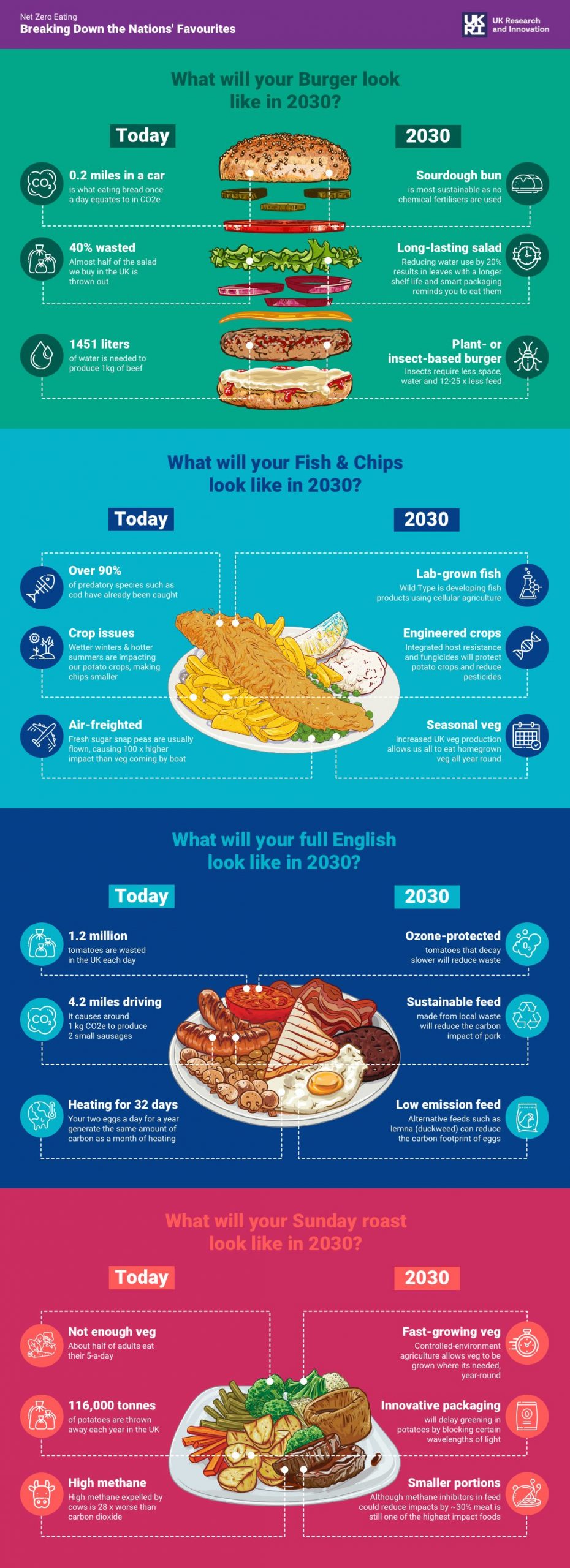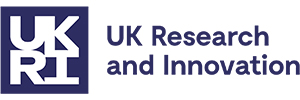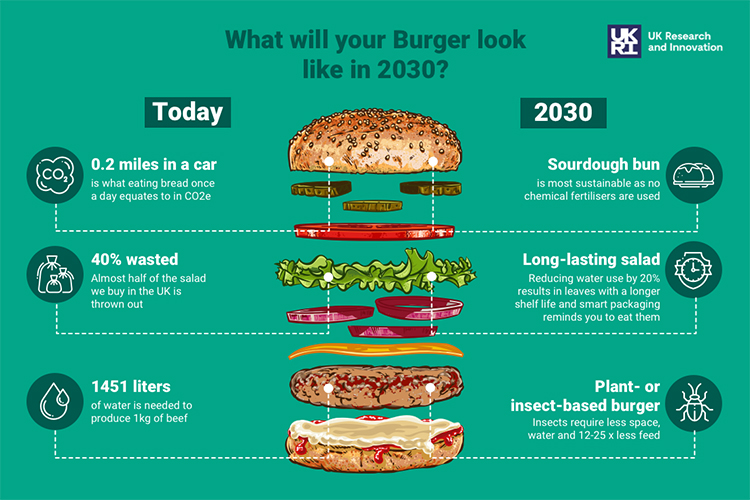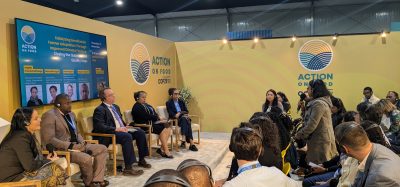Infographic: The Future of Net Zero Eating
- Like
- Digg
- Del
- Tumblr
- VKontakte
- Buffer
- Love This
- Odnoklassniki
- Meneame
- Blogger
- Amazon
- Yahoo Mail
- Gmail
- AOL
- Newsvine
- HackerNews
- Evernote
- MySpace
- Mail.ru
- Viadeo
- Line
- Comments
- Yummly
- SMS
- Viber
- Telegram
- Subscribe
- Skype
- Facebook Messenger
- Kakao
- LiveJournal
- Yammer
- Edgar
- Fintel
- Mix
- Instapaper
- Copy Link
Posted: 17 December 2021 | UKRI | No comments yet
The future of food is in sustainability. Clean eating strives to maximise the value of resource use and minimise adverse environmental impacts. A Net Zero diet will not only change how we grow our crops but also our dietary habits – if implemented correctly, this could make all sorts of improvements from combating climate change right through to economic stability.
Recipe for a Net Zero Food System
The world is on the brink of an agricultural revolution. Billions worldwide are starting to move away from traditional diets and embrace more plant-based foods, not just for ethical reasons but also because these foods provide us with increased levels of nutrition that we can’t find elsewhere.
By 2030, the future of food may look very different: more plant-based proteins, less dairy and meat and more sustainable food choices on our menus. UK Research and Innovation (UKRI) has visualised how we could eat in a Net Zero future.
Climate Change and the Agricultural Industry
It’s important that we all play our part in reducing global warming by making more sustainable farming choices. The agricultural industry has a huge impact on climate change, contributing significantly more than other sectors – so it’s crucial for us to work together and find ways of protecting Earth whilst also providing food security worldwide.
The recently published National Food Strategy, an independent review carried out for the UK government, elaborates on the current challenges in food production with the following points;
- The UK’s land footprint for food is 140% of the size of the UK.
- Global farming productivity is already 21% lower than it could have been without climate change.
- Agriculture – especially beef farming – is still the main cause of land-use change, including tropical deforestation.
- Farming, hunting and fishing are the principal causes of species decline in Europe.
- Around 50% of Earth’s habitable land is used for agriculture, of which 77% is used to graze animals or to produce crops to feed animals.
- The global mass of farm animals is now 22 times heavier than all wild animals combined.
The research supported by UKRI has found that Net Zero Eating can help us reduce our carbon footprint without sacrificing healthy eating patterns. Cleaner, more sustainable food choices will give you the best of both worlds: an appetite for nature and a nutritious diet.
How could our favourite dishes be changed in response to the climate crisis?
A Climate Positive Menu: Breaking Down the Nations’ Favourites
This is how UKRI has visualised our favourite meals in 2030…












